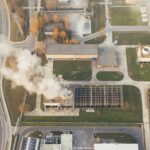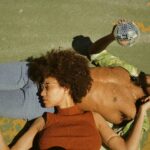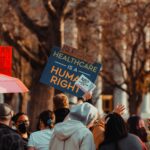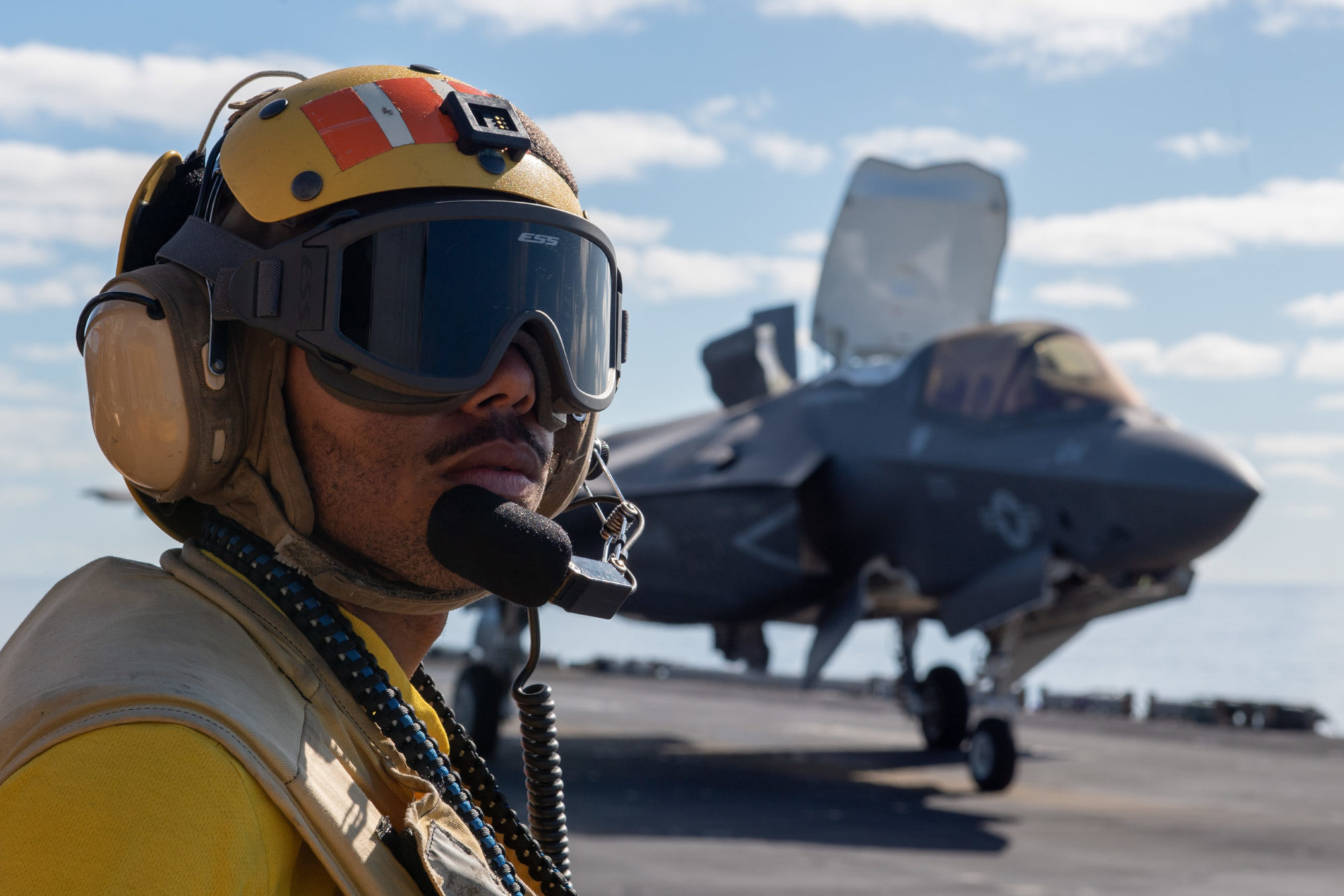On 9/11, I was a 23-year-old non-commissioned officer in the Navy and a few months away from getting discharged. My tour was almost over. I was stationed at Naval Air Station Oceana in Virginia Beach and assigned to an F-14 squadron called the Jolly Rodgers as an avionics technician second class, affectionately referred to as a “tweak.” I fixed radars, radios, IFF transponders, and other avionics systems. Do you remember the scene at the end of Top Gun when all the guys are cheering for Tom Cruise after he lands on the carrier? Well, I would have been one of the guys in the green helmets and vests.
That morning, I was upstairs in the ready room where the officers hung out. It had rows of nicely appointed leather chairs and a TV. Part of the reason that I remember being there so vividly is that I was usually on the flight line or in the hangar bay trying my best to keep our Tomcats in the air. Visiting the ready room was a rare luxury. But that was where I found myself that morning, staring at a TV in confusion and horror as I watched a plane hit a building. After that, things get blurry.
The next thing I clearly remember is being on the flight line, but not how I got there. Everyone was frantically screaming as we scrambled to get our jets off the ground. I spent most of that morning helping to launch our jets, but most of that sequence is a blur too. One thing I do remember is how empty the base looked once all of our birds were in the air. All the flight lines for all the fighter squadrons at NAS Oceana were empty. Dozens of F-18s and F-14s loaded with live missiles scrambled to protect American skies. At sea, we called them CAPs, or Carrier Air Patrols. Launching CAPs from our home base to stop an attack on America was not something I ever expected to do. It was surreal. I hate when people thank me for my service because when I remember 9/11, I do not remember doing anything. I mostly remember standing there bewildered while jet after jet roared into the sky.
I hate when people thank me for my service because when I remember 9/11, I do not remember doing anything. I mostly remember standing there bewildered while jet after jet roared into the sky.
Toward the end of the day, once things had calmed, we stood in formation in the hangar bay. Our entire squadron was assembled to hear our commanding officer debrief us about the day’s events. We were put on alert and told to prepare for a possible deployment.
We were put on alert because, in the immediate aftermath of the attack, we were unsure which way Pakistan was going to go. We were waiting to see what its military ruler, General Musharraf would do. Once he agreed to side with the US, we stood down. The Taliban did not have modern air defenses. The firepower of one aircraft carrier battle group (we already had one nearby) combined with America’s long range bombing capabilities was enough to take them down. But adding Pakistan into the mix would have changed the story entirely. People sometimes forget there was a small window when the world did not know what Musharraf was going to do. It was during that window that I faced the possibility of going to war because 19 lunatics decided to pick a fight they had no chance in hell of winning. Despite his bluster, Musharraf, unlike al-Qaida, knew Pakistan had no chance. He made the smart decision even though his countrymen hated him for it. He sided with America. His decision led to a civil war that claimed the lives of roughly 80,000 Pakistanis while saving the lives of countless others in the process. If Pakistan had sided with the Taliban, I would have deployed and participated in the sustained bombing of its air defenses, infrastructure, and other military installations.
I was especially relieved at his decision because I am Pakistani. At least, I was born in Pakistan. I came to the United States when I was two months old. Not only am I Pakistani, but a lot of my family served in the Pakistani military. My grandfather was a Colonel in the Pakistani Army. Several of my uncles also served and I have no doubt that I would have too if I had grown up there. As a child, I was regaled with stories about my grandfather getting drunk with Yahya Khan (Pakistan’s second military ruler) and the two clowns jumping into the pool of the officer’s club while still wearing their dress uniforms or mooning some general while they were riding in a convoy together. In other words, my perception of Pakistan’s military was tied to images of my grandfather. My hesitation was not entirely based on nostalgia either. My father lives in Islamabad. My family is from a place called Wah, which happens to have a lot of military ordnance factories. Bombing Pakistan’s military would literally have meant bombing my family.
It was difficult not only because I am Pakistani, but because I am a Muslim too. The conflict between Islam and the West did not start on 9/11. But that day was clearly a turning point. I had always felt the contradictions of serving in the US military as a Muslim. In fact, I remember telling my executive officer that I did not plan on re-enlisting when I first joined the Jolly Rogers because I felt that our enforcement of the no-fly zone over Iraq was immoral and a violation of the basic principles of international law. I still get upset when I think about the thousands of Iraqi children that died because of those sanctions. I was an E-4 at the time and most third-class petty officers do not usually share this sort of sentiment with their XO the day they are checking into their new squadron. At least, I assume this was not a typical exchange. I may have been a little emotional because the first thing I was asked to do when I reported for duty was watch a short video of highlights from the Jolly Rogers’ last deployment.
I loved the Navy and the people I served with, but I had come to feel that I was serving on an Imperial Star Destroyer well before 9/11 ever happened.
They had served with distinction and engaged in strike operations against Iraqi military targets and made a video to celebrate. The video contained a black and white image from one of our bombs descending to its target while Godsmack played in the background. The next image was from news footage of that same attack, showing the rubble and bodies being dug out. It made me sick. Saddam Hussein was obviously a villain. But I still felt bad for the people we killed. I felt worse for their families. I loved the Navy and the people I served with, but I had come to feel that I was serving on an Imperial Star Destroyer well before 9/11 ever happened. I still thought about pursuing a career as an officer because, despite my concerns, I felt at home in the Navy. To this day, my closest friends are guys I served with. I still miss the rush of working on the flight deck of a Nimitz class carrier during flight ops or how beautiful the night sky looks from the middle of the ocean. 9/11 finally drove home the point that I had no business staying in the Navy. But I think I already knew that. I went to law school instead.
Aside from one of my Navy colleagues taking a swing at me the day after the attack and then immediately hugging me and apologizing, I did not experience any overt Islamophobia in the immediate aftermath of the attack. I experienced the opposite. I lost count of how many guys in my unit took me aside to insist that I seek them out should anyone harass me in any way. My best friend’s mom (he was deployed and steaming toward the Indian Ocean at the time) even offered me sanctuary with her family in the foothills of Appalachia if anyone threatened me. She assured me that her people were well-armed and ready to protect me should the need arise.
Unfortunately, as the years passed and the War on Terror turned into the Forever Wars, I did notice a change. Being at war these past twenty years has changed our nation in profound ways. In the same way that Afghanistan and Pakistan developed a “Kalashnikov culture” after the Soviet invasion, America’s continual state of war has created an “AR-15 culture” among those who were sent to fight these wars. Increased Islamophobia is just one manifestation of these changes. The staggering number of resources we have devoted to war and death will continue to corrupt the very essence of our nation until we change course, but I do not think this is the medium to have that conversation. Instead, I’ll just illustrate my point by highlighting that I refuse to tell you my name – the name you see now on the byline is a pen name. Our culture has grown so intolerant of genuine Muslim voices that I am not going to subject myself to the vitriol that sharing some of my thoughts as a Muslim is sure to bring. If that does not tell you all you need to know about being Muslim in America today, then I am not sure what will.
“Mirrors for the Prince” is the creator of the blog www.mirrorsfortheprince.com where he examines the causes of the Muslim world’s sustained weakness and suggests reforms that can help it modernize.
“The Long Tunnel” is a series of articles reflecting on the impact of Sept. 11 and how it has shaped the world we live in today. You can read more in the series here.





















